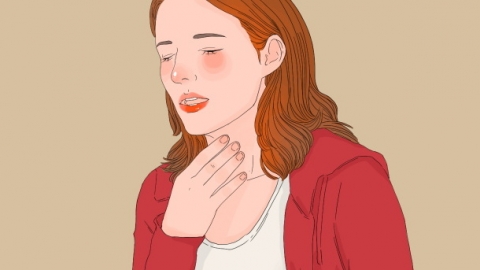Why does drinking kudzu root water cause a bitter taste in the mouth?
Drinking pueraria root water may cause a bitter taste in the mouth due to individual differences, insufficient water intake, poor oral hygiene, gastrointestinal dysfunction, or damp-heat in the liver and gallbladder. Appropriate management can be selected based on specific situations. If physical discomfort occurs, it is recommended to seek medical attention at a hospital promptly and follow medical advice for treatment.

1. Individual differences: Everyone's perception of taste varies. Some people have more sensitive taste buds and may find the taste of pueraria root water more unpleasant, leading to a bitter sensation in the mouth. To improve this, appropriately adjust the concentration of the pueraria root water by reducing the amount of pueraria root used or adding a small amount of honey to improve the flavor.
2. Insufficient water intake: When water intake is inadequate, saliva production decreases, causing taste buds to become more sensitive and the flavor of pueraria root water to concentrate in the mouth, intensifying the bitter sensation. Increase daily water consumption, including both pueraria root water and plain water, to maintain oral moisture.
3. Poor oral hygiene: Food residues and bacterial growth in the mouth can affect taste perception, making the pueraria root water taste bitter. Maintain good oral hygiene by brushing teeth properly in the morning and evening, rinsing the mouth after meals, and using dental floss when necessary.
4. Gastrointestinal dysfunction: Gastrointestinal dysfunction may be caused by irregular eating habits, high mental stress, and other factors that slow gastrointestinal motility and reduce digestive function. Symptoms include bloating, abdominal pain, bitter taste in the mouth, and loss of appetite. Patients can take medications such as domperidone tablets, herbal digestive tablets, or Bifidobacterium triple viable powder under a doctor's guidance to alleviate symptoms.
5. Cholecystitis: Cholecystitis is often caused by obstruction of the cystic duct and bacterial infection. Inflammation can lead to abnormal bile excretion, resulting in symptoms such as bitter taste in the mouth, right upper abdominal pain, and nausea. It is recommended to take medications such as cefuroxime axetil granules, anti-inflammatory and bile-promoting tablets, or ursodeoxycholic acid capsules under medical guidance to relieve discomfort.
Maintain a light diet in daily life and avoid consuming spicy or irritating foods such as garlic, hot pot, and mustard. Additionally, ensure adequate rest and avoid excessive fatigue to prevent negative effects on overall health.




